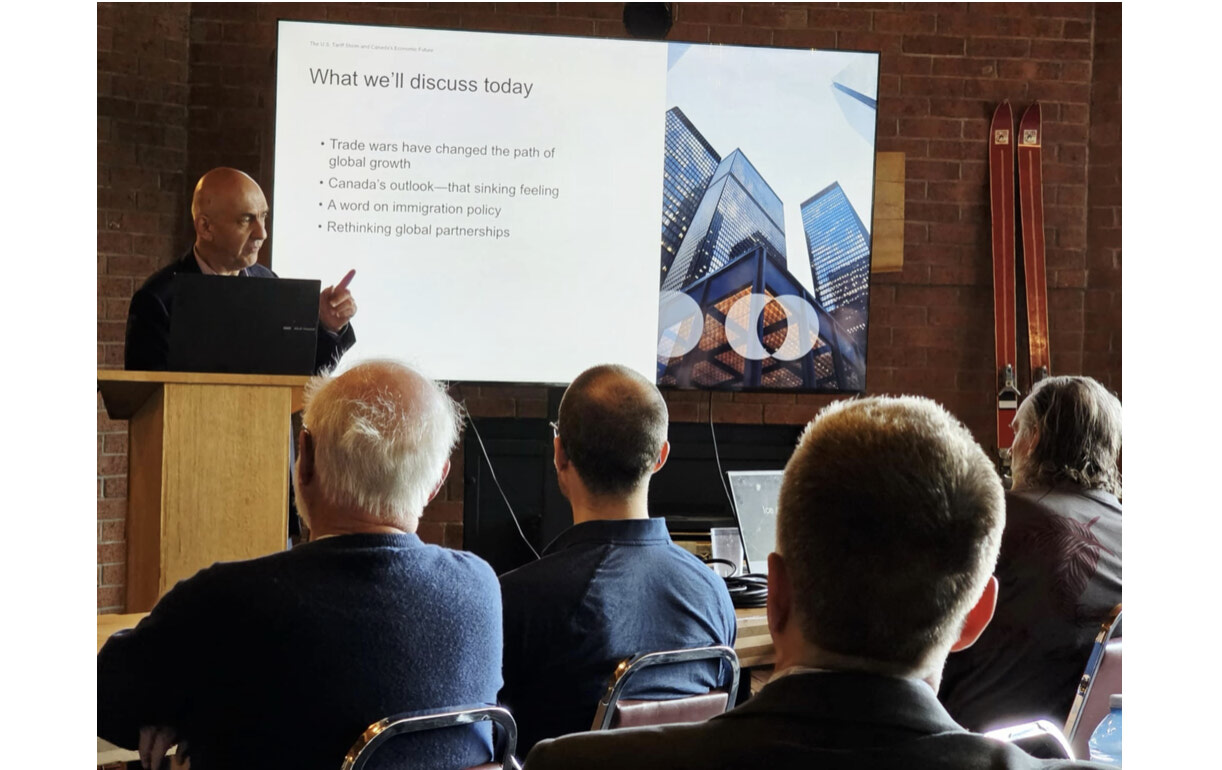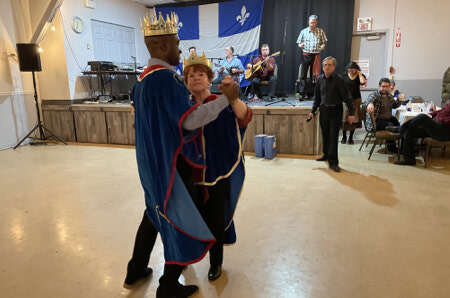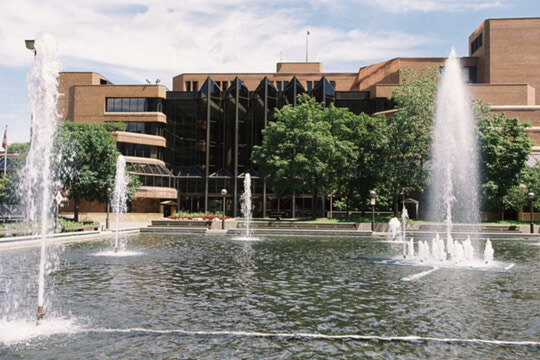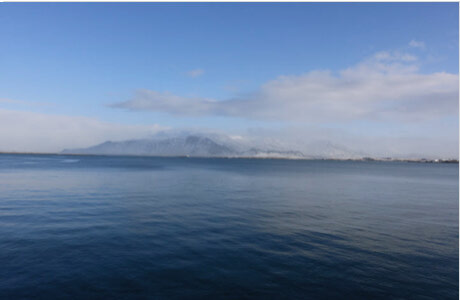Wakefield's BIG meeting blends local innovation with economic warning
Tashi Farmilo
Pedro Antunes, chief economist of the Conference Board of Canada, delivered a sobering economic outlook at the Business Improvement & Growth (BIG) group meeting on May 26, warning that Canada could face severe instability should global trade tensions intensify. Yet, in a packed room at Centre Vorlage, a cast of local entrepreneurs and community leaders offered a hopeful counterpoint—sharing bold, community-rooted projects grounded in sustainability, collaboration, and the circular economy.
Antunes warned that renewed U.S. tariffs under a potential second Trump presidency could strip up to $35 billion from Canada’s GDP and eliminate more than 130,000 jobs in a single quarter. “We’re looking at real threats to our economic fabric,” he said. “What drives success in a knowledge economy is science, the rule of law, education, and innovation—not tariffs and isolation.” Upon reflecting on the event afterward, Antunes—who lives nearby in Chelsea—added, “It was a great opportunity for me to meet new folks and get a better sense of what entrepreneurs are doing in our community.”
The event, organised by BIG founder Sylvain Henry, showcased a grassroots response steeped in creative resilience. Charles Zave, a biologist and forensic analyst, presented plans for a hands-on educational park, where children would excavate fossils and ancient tools. “Kids would excavate ancient fire pits, mammoth bones with tool marks, and put together the story—how did people live? What tools did they use?” he said. “It’s hands-on biology, anthropology, and critical thinking.”
Desmond Silva introduced the Gravine Project, a clean energy initiative centred on a unique mechanical generator powered by gravity. “The Gravine has the potential to solve a number of local energy needs using simple physics and sustainable mechanics,” Silva explained. Designed to run without fuel, sunlight, wind, or water, the Gravine could offer decentralised, mobile electricity for rural areas and even off-grid production facilities. “It overcomes the limits of both fossil fuels and today’s green technologies,” he said. Silva is currently fundraising for a working prototype. More information is available at gravineproject.com.
Rail heritage took centre stage next, as Stanley Britton and Peter Smulders presented the Train Turntable Project, aimed at revitalising Wakefield’s historic rail yard. “Wakefield’s train station once brought 500 visitors at a time into the village,” Britton recalled. Smulders, who recently relocated his global attractions firm to the region, added: “This town deserves a destination-worthy public space that reflects its charm and history.”
Claude Giroux, La Pêche councillor and dark sky advocate, announced that Wakefield is set to become Canada’s 20th certified dark sky preserve. “This is the Ring Nebula,” he said, passing around an image taken from his driveway. “We’re sitting on prime astro-tourism real estate.”
Ben Chicoine and Sophie Abboud of Fab Structures showcased their prefabricated housing solutions. “We’re creating real solutions for real people,” Abboud said, describing modular units designed for affordability, energy efficiency, and rapid deployment.
Lulu Ezeocha delivered a moving presentation on the loneliness facing rural seniors, and her efforts to counter it. “Too many seniors are isolated,” she said. “A simple visit, a shared story, can change everything.” Through her organisation, LuluAnoli Healthcare Solutions, she is also fostering intergenerational community connections. Her next public event, Exploring the Cultures of Canada: The Igbo Tribe, Nigeria West Africa, will be held on Saturday, June 7 from 11 - 4 at La Cabane en Bois, 331 Boulevard de la Cité-des-Jeunes, Gatineau. It will feature Nigerian pastry, music, storytelling, traditional attire, and artifact displays—all part of her wider mission to reduce isolation through culture.
Sylvain Viau spoke about the Esplanade Wakefield development, a mixed-use residential project designed to bring families into the village while retaining its forested character. “Growth should enhance a community, not overwhelm it,” he said.
Mariann Hegedus, a fibre artist and founder of Taltos Archery and Leather, brought a distinctive cultural depth to the event with her intuitive archery workshops. Based in Bowman, Quebec, she offers a range of immersive experiences including ground archery rooted in instinctive shooting, leather and felting workshops, children’s camps, and day retreats on her 40-acre property. “It’s not just a skill—it’s a reconnection with focus, self-awareness, and nature,” she said. A Hungarian-born artisan with a background in traditional textile arts, Hegedus also creates custom handcrafted leather goods using centuries-old techniques. Her work and upcoming classes can be found via @Taltos Archery and Leather on Facebook and Instagram.
Rounding out the programme, Alex Gaboury, co-owner of Centre Vorlage, outlined his team’s work transforming the ski hill into a four-season destination. “We’re creating progression trails for biking and skiing,” he said. “We’ve got cabins and community events. Our goal is to be a basecamp for rural life.”
Henry closed the session by highlighting BIG’s ethos: “Everything we’re doing is about creating circular value—ideas that feed back into the community, generate resilience, and spark further innovation. None of it works if we don’t work together.”






